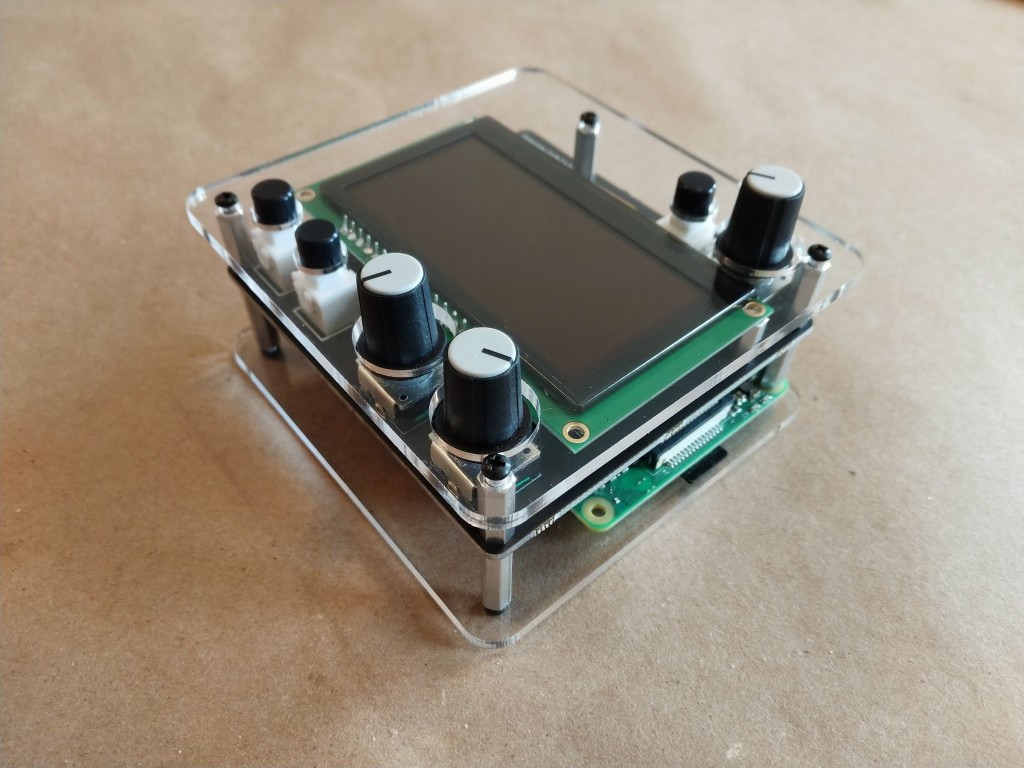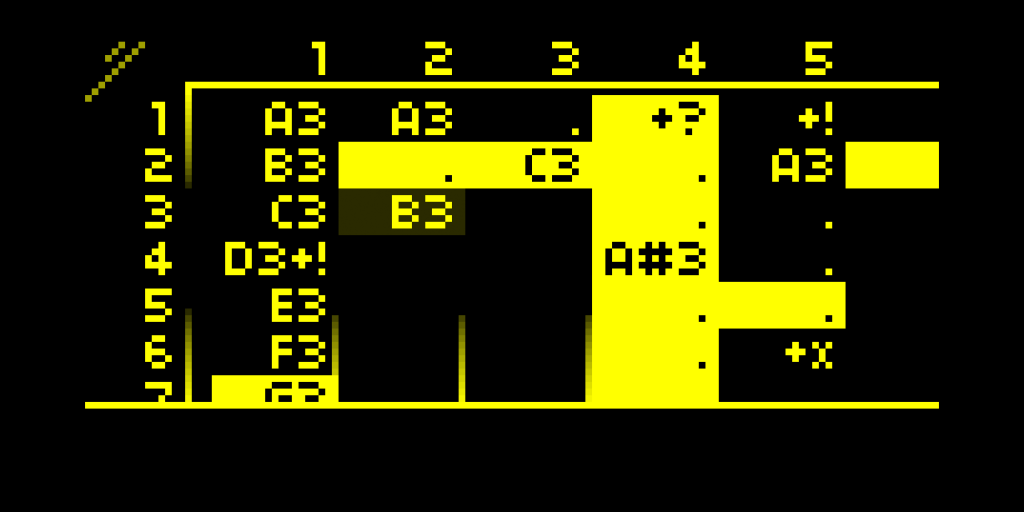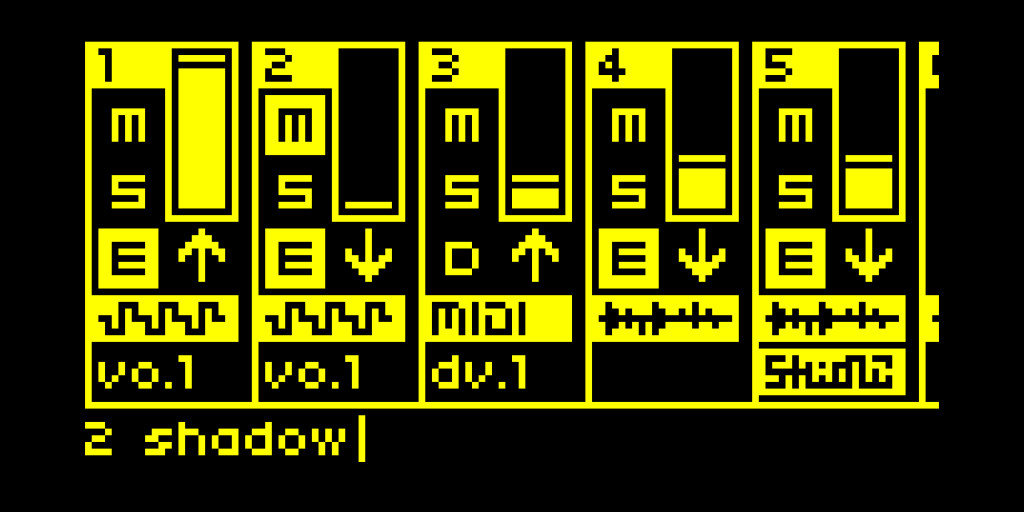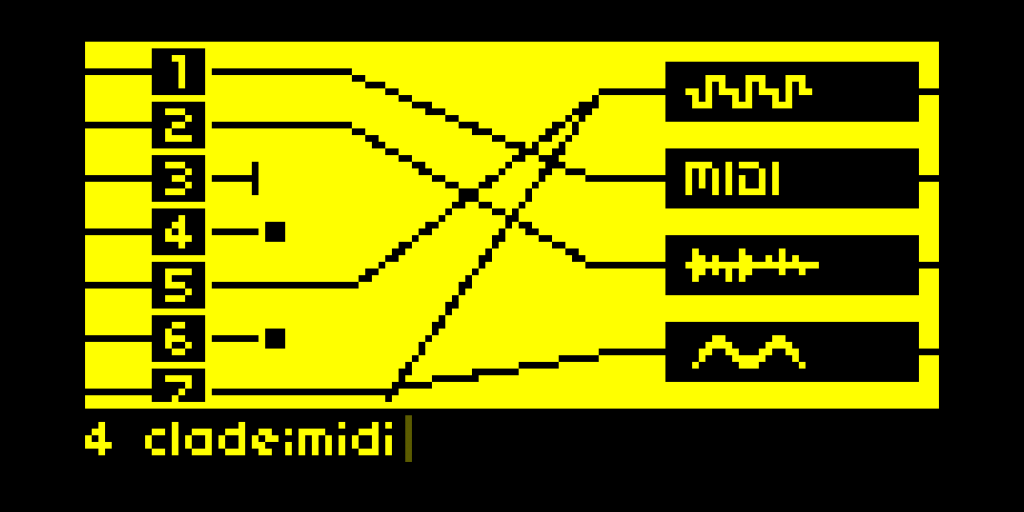norms from monome opens up an ecosystem of musical ideas. But if opening that door was out of your budget range, consider a DIY option – and marvel at what this can do with a terrific new app.
For those of you just joining us, we’ve been watching norns’ evolution for some time now. Like monome before it, one important aspect of norns is that it has a tightly knit niche community behind it. And if monome was about creating a hardware grid as canvas for the computer, norns is a minimalist musical computer itself.
Previously, Andreas Roman talked about his experience as an owner:
I do mean there is a sense of art to the platform – it’s a place for off-the-wall ideas, expressed in their pure form. So, for instance, we saw arcologies recently:
Word must be spreading, because it seems users are looking for an entry point that’s more cost effective than the fully-assembled hardware from monome. Owners do say that hardware is worth the investment, but – that won’t mean anything to you if you lack the scratch. And on top of being skint, plenty of people prefer to DIY stuff to feel closer to what they’ve made (and prepared to repair it). In any event, to everyone who said “wait, can’t I just do something like this with a Raspberry Pi,” yes, that’s exactly what you can do.
norns shield is a stupidly-simple shield for Raspberry Pi that lets you run all those cool norns apps – basically, by adding a screen and some knobs and buttons. From the folks who embrace minimalism, they describe this as even more minimal and tiny – it is just that screen and knobs, but that’s what you need.

The legendary tehn (Brian Crabtree) of monome has put up the full project and bill of materials and says it’ll remain synced with the main norns codebase:
https://llllllll.co/t/diy-norns-shield/27638
You can buy a shield direct from monome to support the wonderful people who made it. It’s due back in stock in late November, so Americans can order this while drunk on turkey, I’m guessing (while us Americans living in Europe try to beat you to it, hopped up on Club Mate, no doubt):
It will run on an RasPi 3B+ or greater. Now this does make me want to make a mod for that utterly adorable Raspberry Pi keyboard, which triggered all my 80s computer nostalgia.

Killer tracker app
Now if arcologies didn’t already sell you on this thing, I bet the new app Yggdrasil will be completely irresistible. (Yes, even if the name sounds like you’re trying to pronounce the name of your prescription sleep aid while under the influence of your prescription sleep aid.)
It’s a cyberdeck tracker.
In other words, for many, it’s the norns’ killer app. Watch – it might be 100% pure love, I’d say:
This is from the norns community, so if you came expecting some completely baffling poetic abstractions, of course you’ll get them. “Neurotically focused on their endless descent, slots are stacked into tracks of different heights, like so many stalactites reaching into the terminal darkness below.” Uh, that means I think it has nested track slots and they’re shown vertically, though their version definitely sounds cooler.
Oh and you can tap the ‘;’ key a lot, which coders will appreciate it. Or as the creators, “Northern Information Applied Sciences & Phantasms Working Division” put it:
Where other languages use may use commas or parenthesis, Yggdrasil favors the
;character for its position under the little finger: economic, ergonomic, exegesis.
Hey, ; is good!
Everything you would want a minimalistic norns tracker to be is here. You get lots of event types, including not only randomizers and direction toggling but also ‘goto’ events that let you jump around tracks. There are plenty of musical commands, focused on performance, meaning arpeggios, chords, sequencing events, and spontaneous weirdness are all easily accessible.
It’s like someone boiled down all the goodness of computers – keyboard shortcuts, musical freedom, screenshots, and the lot – and left out all the lame bits. It’s just those moments of ecstasy when everything feels fast and easy and your finger dances across shortcuts, and none of the agony.
I call it a tracker, but this is also exceptionally good at loading samples – as with the ypc command.
Another 90s-ish-feeling demo – shown on the DIY hardware, even:
I doubt this is really competition for something like the Polyend Tracker, which sticks a tracker into a full-blown hardware unit. But on the other hand, if you’ve only got a couple hundred bucks and a keyboard, or if you like the idea of something being tiny, and/or open, this looks like a dream come true.


I know I’m going to try to build one this winter, and I hadn’t really considered norns for myself until now. It’s so delightful, it’s actually a pleasure just browsing through the documentation:
https://northern-information.github.io/yggdrasil-docs/
How fast is it? Fast enough that it was built with a way to make sample playback easy (YPC) and to use a notation for notes that’s quicker to type.
https://northern-information.github.io/yggdrasil-docs/#glossary-ygg-notation
Full site:
https://llllllll.co/t/yggdrasil-v1-0-3/38040
Disclosure: if it seems like I’m selling these, I am. I get 100 nornbucks for each norns I sell, and another 10 norncents for each minute you spend using these apps, which I can spend of course on the norns homeworld near Alpha Centuari. (I’m kidding, of course. At least until we develop FTL drive tech, that is.)
Another tracker to check:
Thanks to reader qip for the tip – the first (?) tracker on norns is NISP, which is simpler as far as functions but uses the Scheme dialect for livecoding. There is a ton of power here, including the ability to do some fun stuff with synth parameters like FM and math and coding on the fly:
https://github.com/itsyourbedtime/NISP